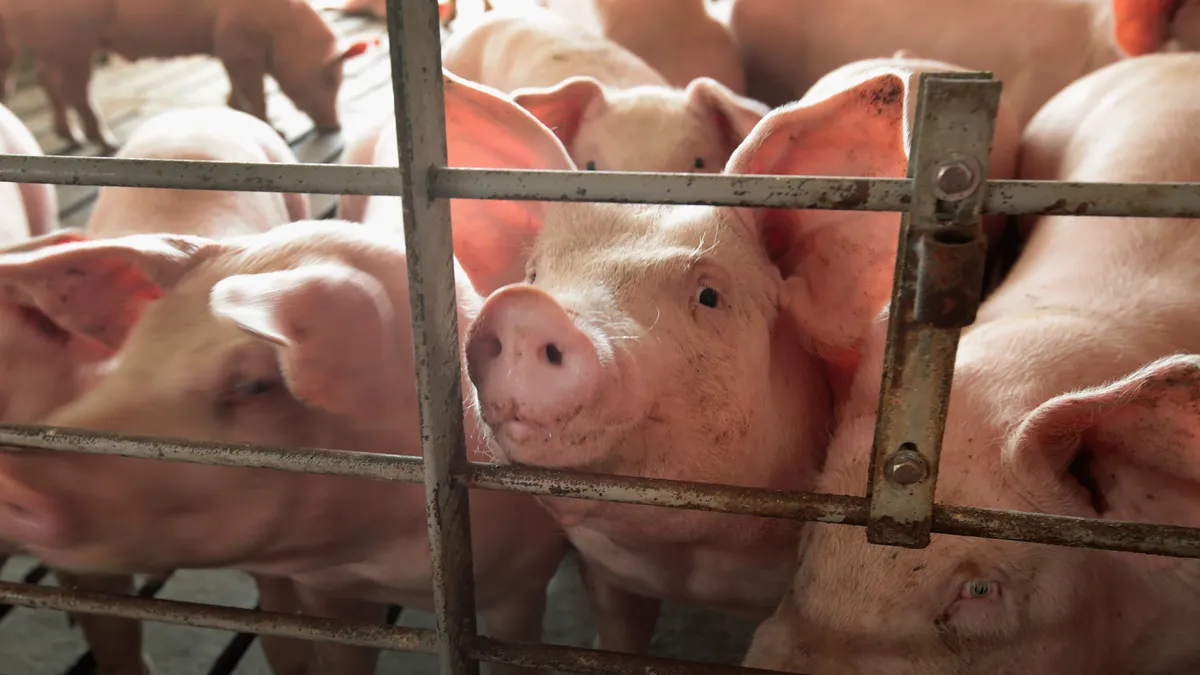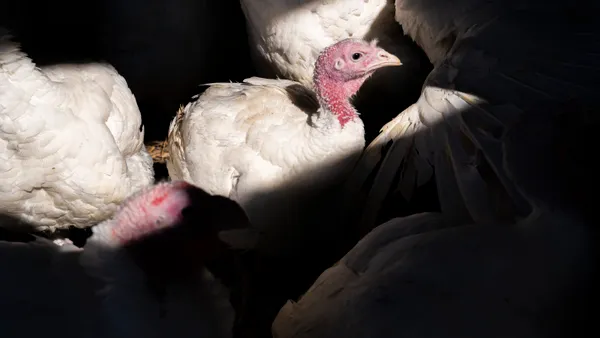Dive Brief:
- The U.S. Environmental Protection Agency earlier this month denied petitions from activists to strengthen regulations for concentration animal feeding operations, saying it needs more information about the extent of pollution originating from so-called "factory farms."
- The agency said it will instead launch a "comprehensive evaluation" of potential areas of improvement within the current regulatory framework. It is working to collect data on the extent to which CAFOs pollute waterways, and plans on convening a subcommittee to recommend solutions.
- The agency’s denial is in response to a 2017 petition calling for tougher discharge permitting systems for CAFOs. The EPA also denied a separate petition filed in 2022 aimed at regulating wet manure management systems.
Dive Insight:
Activists say waste from massive livestock operations pose environmental risks to nearby waterways and could contaminate residential drinking water. Over 21,000 CAFOs operate in the U.S., yet less than one third have permits to discharge pollution.
Part of the reason for that discrepancy is due to the EPA's lack of jurisdictional reach and questions over whether farms purposefully pollute waterways. Permits are only required for farms that know they will discharge waste — however, most contamination of waterways occurs from runoff as a result of excessive rainfall.
Federal courts struck down multiple EPA efforts to regulate CAFOs in 2008, including a proposal that would have required all facilities to apply for permits unless they were able to demonstrate there was no potential for pollution discharge.
In its denial of the petitions, the EPA said the environmental groups' push for stronger regulation was similar to the agency’s overturned proposal in 2008.
"EPA is concerned that issuing a rule consistent with the petition’s request would be even more vulnerable to claims that EPA is exceeding its statutory authority," the agency said in its rejection.
Meat producers hailed the EPA's decision, with the National Pork Producers Council President Scott Hays saying in a statement that the petitions were "baseless" and sought dramatic changes to a "long-standing and well-designed regulatory system to protect the environment."
Excess agricultural nutrient pollution has been linked to harmful algae blooms in the Gulf of Mexico. A 2021 study found that residents in North Carolina with high exposure to CAFOs were more likely to die from anemia and kidney disease.











